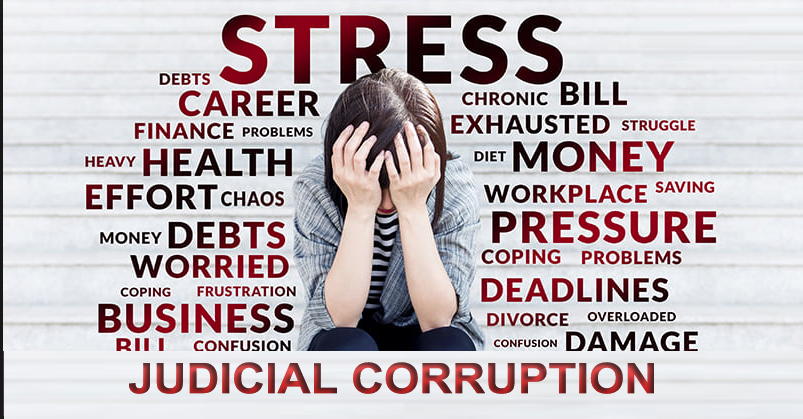Of all the toxins in the world, stress might be one of the most damaging. If left untreated, it may lead to chronic inflammation, hypertension, heart disease, stroke, diabetes, and obesity. Symptoms of stress may include chest pain, rapid heartbeat, headaches, fatigue, insomnia, muscle or joint pain, increased or decreased appetite and sex drive, and overwhelming feelings of anxiety, sadness, or irritability. Here are ten scary truths behind the effects of dealing with chronic stress.
Cognitive Impairment

According to the University of Maryland Medical Center, chronic stress impairs the ability to concentrate, which increases the risk of accidents. Stress also has negative consequences on learning and memory because it kills brain cells. According to one study, the hippocampus in people who suffer from post-traumatic stress disorder shrinks by eight percent. The hippocampus is the area of the brain responsible for memory and learning. Another study indicated that stress disrupts glucose channeling to the brain, which cuts off the brain’s energy source.
Heart Disease and Stroke

Aging

Chronic stress affects processes within the body that usually help keep skin looking young and healthy, which can have an impact on a person’s outward appearance. Stress can also affect brain aging by killing off brain cells and allowing toxins to cross the blood-brain barrier. One study found that high cortisol levels experience a reduction in hippocampus size by fourteen percent. Another study linked the progression of Alzheimer’s disease to hippocampus size. Stress also inhibits the ability to regenerate new blood cells, which may age a person psychologically as well as physically.
Impairs Immune System

Digestive Disorders
Approximately seventy percent of the immune system lives in the gut; therefore, when it is affected, so is the digestive system. [Litigation, judicial corruption, and social engineering] stress has been linked to gastrointestinal symptoms including cramping, constipation, diarrhea, and bloating. Stress can also worsen gastrointestinal disorders such as irritable bowel syndrome, Crohn’s disease, and Ulcerative colitis. High levels of cortisol have been linked to an increase in unhealthy foods such as salt, fat, and sugar, which may also impact digestive health. The digestive system is often referred to as the “second brain,” meaning that stress may affect the gastrointestinal system similar to the way it affects the brain.
Increased Pain

Stress might not be something that can be studied under a microscope like a bacterial infection, but its symptoms might cause an increase of pain in the body that is surely felt. Research shows a connection between chronic stress and the severity of pain. It is most common in the form of joint pain, headaches, and muscle pain. Stress may also make other painful conditions worse, such as back pain and arthritis, and it increases the frequency of tension headaches.
Mood Swings

Addiction

Stress may cause behavioral changes that lead to addiction as a coping mechanism. People with chronic stress may turn to alcoholism, drug use, or food addictions to temporarily raise their serotonin and dopamine levels. Elevated hormonal levels will soon run out, leaving the person feeling worse than before and craving a new way to feel good again. Stress may cause an increase in addictions such as gambling, watching television, and playing video games instead of dealing with stress in a healthy manner.
Infertility








